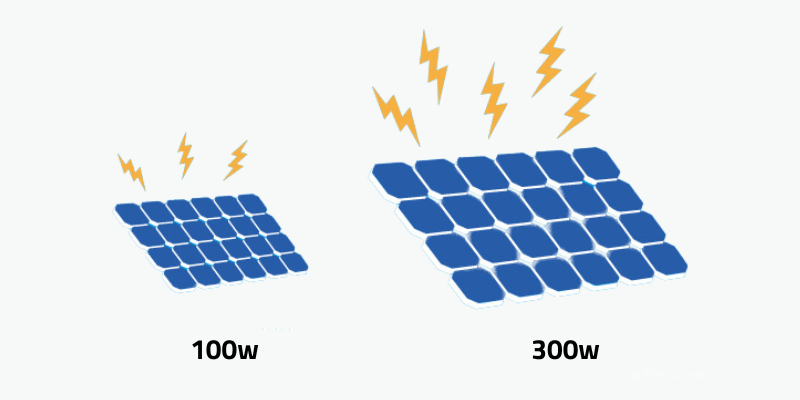I watt misurano la potenza, indicando il tasso di trasferimento di energia o conversione. Prende il nome dall'inventore scozzese James Watt, questa unità è vitale in campi come l'ingegneria elettrica e la fisica. Comprendere Watts ti aiuta a valutare le prestazioni di un dispositivo elettrico misurando il consumo di energia e l'efficienza.
Cosa sono i watt in termini semplici?
Un watt misura il tasso di utilizzo o produzione dell'elettricità.
Pensaci come riempire un secchio con acqua: la portata rappresenta l'alimentazione, simile a come funzionano i watt per l'elettricità.
Ad esempio, una lampadina da 60 watt consuma 60 watt di elettricità in un dato momento in corso; Wattaggio più elevato significa un maggiore consumo di energia.
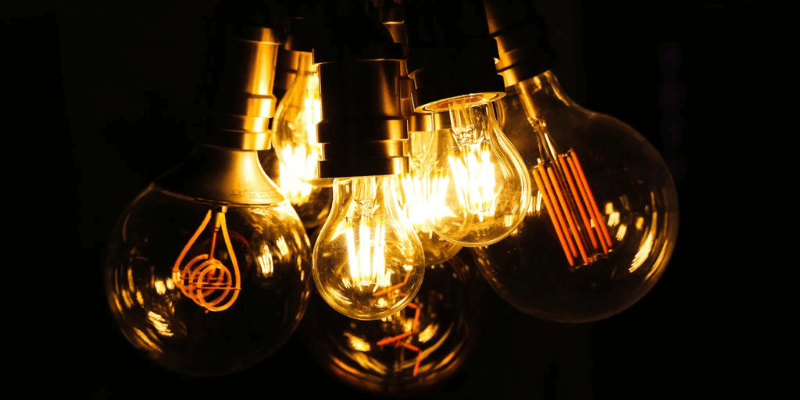
Multipli comuni watt e cosa significano
I watt sono valutati in multipli di 1.000.
- Milliwatt (1/1000th di un watt) è l'unità più piccola, comunemente usata per misurare la potenza di uscita di LED e laser.
- Un chilowatt (KW) è uguale a 1.000 watt ed è un'unità standard per misurare l'elettricità; La bolletta elettrica probabilmente riflette questa misurazione.
- Un Megawatt (MW) è uguale a 1.000 chilowatt, usato per misurare la potenza di grandi motori elettrici, sottomarini e portaerei.
- Un Gigawatt (GW) è uguale a un miliardo di watt, in genere utilizzato per misurare la potenza di uscita di grandi generatori elettrici. Le grandi città possono consumare questa quantità di ondazione immediatamente.
I dispositivi elettrici a casa sono classificati in watt o chilowatt; Ad esempio, una lampadina può utilizzare 60 watt mentre un forno a microonde utilizza 750 watt.
Gli elettrodomestici come i frigoriferi hanno valutazioni diverse: una valutazione iniziale (ad es. 1.200 watt) quando si accende per la prima volta e una capacità di esecuzione (ad es. 800 watt) durante il normale funzionamento, che può essere un po 'confuso.
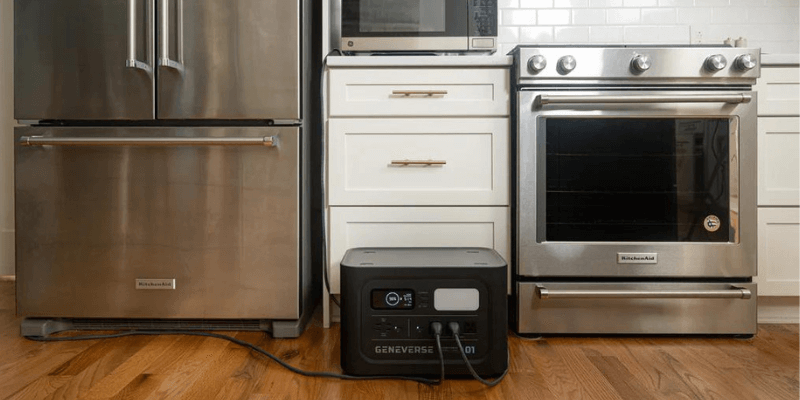
Come misurare i watt?
Per misurare i watt, è necessario conoscere gli amplificatori e i volt da una fonte di alimentazione, che può essere misurata con un multimetro.
Per i circuiti DC, utilizzare l'equazione: watt (w) = volt (v) × ampere (a).
Ad esempio, un dispositivo che opera a 120 volt e il disegno 2 ampere consuma potenza come segue: W = 120 V × 2 A = 240 W.
This can also be expressed as Power = Amps x Volts (P = I*V) in more technical contexts.
Nella misurazione della potenza CA, il fattore di potenza (PF) aggiunge complessità da watts = volt x amps x pf. Il fattore di potenza misura il modo in cui un dispositivo elettrico converte Volt-Aste in watt.
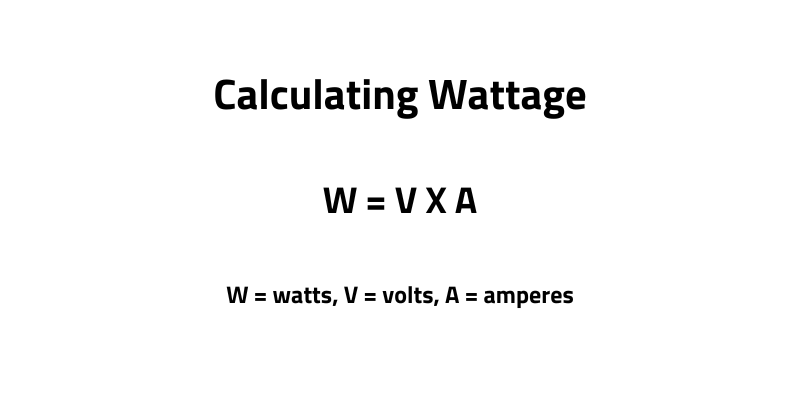
Wattaggio elevato contro bassa potenza
Alta potenza significa un consumo di energia più elevato, spingendo la creazione di elettrodomestici a bassa potenza.
Tuttavia, le onde alte sono utili per la generazione di calore; hotter heaters have higher wattage.
È importante notare che gli elettrodomestici ad alta potenza producono più calore e possono sovraccaricare circuiti, portando a fusibili soffiati o interruttori inciampato.
Al contrario, i dispositivi a bassa potenza come i caricabatterie del telefono cellulare e le lampadine a LED richiedono meno energia.
Differenza tra watt & Watt-ore
Watts misura l'alimentazione che un dispositivo utilizza, mentre watt-ore Misurare l'energia consumata nel tempo.
Un watt-ora è uguale a un watt usato per un'ora.
Ad esempio, una lampadina a LED da 10 watt lasciata accesa per un'ora consuma 10 ore di energia.
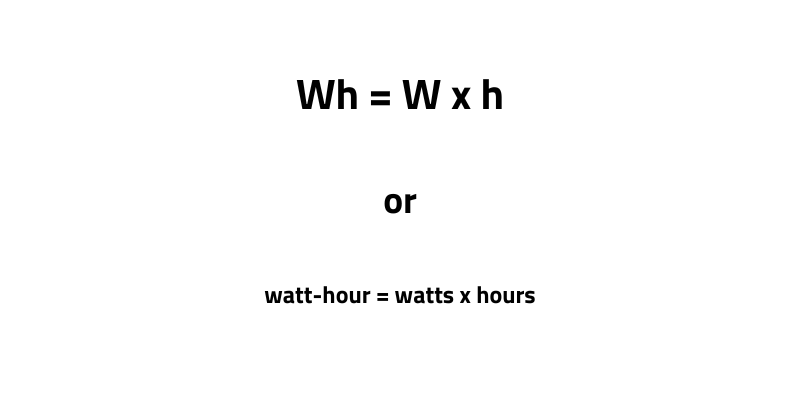
Capacità di alimentazione
La capacità di un alimentatore, misurata in onda, indica la massima potenza che può offrire.
Quando si seleziona un alimentatore, scegli uno con una potenza sufficiente per le esigenze del tuo sistema.
È meglio avere una capacità in eccesso rispetto all'energia insufficiente. Punta per il 10-20% di spazio per la testa tra il punteggio massimo dell'alimentazione e i requisiti del sistema.
Ad esempio, se un dispositivo ha bisogno di 200 watt, non utilizzare un alimentatore da 200 watt; Scegli uno con una potenza più alta, come un alimentatore da 240 watt.
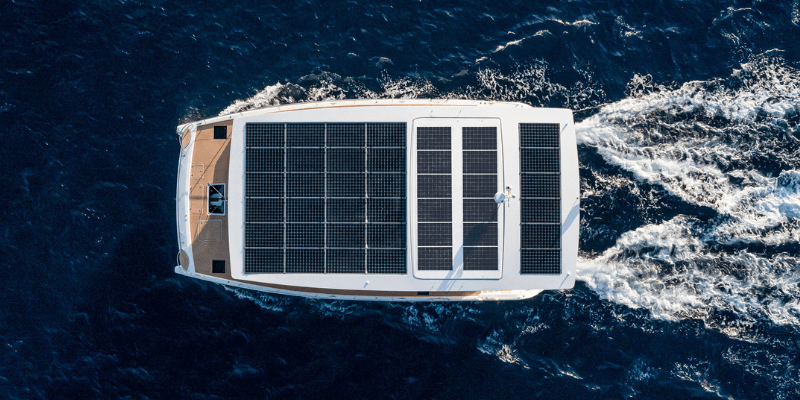
Why Do Watts Matter in RVs & Barche?
Quando si viaggia in un camper o in una barca, il calcolo dei requisiti di energia quotidiana è cruciale.
Per le applicazioni marine, comprendere la potenza motoria necessaria in base alle dimensioni della tua barca.
In camper, determinare quali apparecchi puoi eseguire contemporaneamente.
For instance, a generator providing 4,000 watts can support an air conditioner, microwave, and several small appliances but not all at once.
Se si considera un sistema solare per la tua barca o camper, calcola la tua potenza di 24 ore per determinare quanti pannelli solari hai bisogno in base alla loro potenza per sostenere l'uso quotidiano.
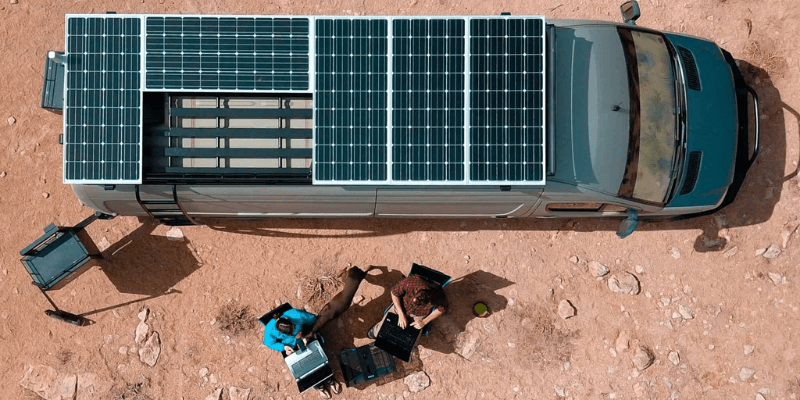
Di quanti watt di solare hai bisogno?
Per determinare la potenza necessaria per i pannelli solari per alimentare il camper, la barca o l'off-grid, verrà utilizzato elencando tutti i dispositivi elettrici. Registra la potenza di ogni dispositivo e il tempo di esecuzione previsto.
Quindi, aggiungi le onde insieme e totale i tempi di esecuzione. Moltiplica questi due totali (Wattaggio totale x Tempo di esecuzione previsto totale) per trovare le ore Watt richieste.
Ad esempio, se si prevede di eseguire tutti i dispositivi per 12 ore con un pannello solare da 250 watt, può produrre 3.000 watt-ore (250 x 12 = 3.000). Se il tuo requisito totale supera le 3.000 watt-ore in quel periodo, avrai bisogno di più di un pannello.
This method is simplified; Molti altri fattori influenzeranno le esigenze solari. Per un approccio più dettagliato al calcolo dei requisiti per un camper, è possibile controllare L'articolo di Etrailer.


